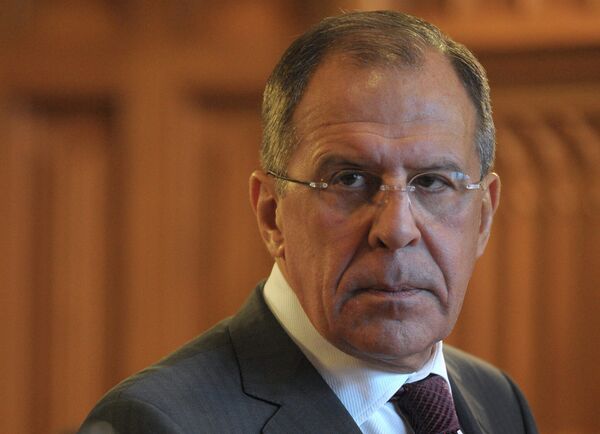MOSCOW, April 11 (RIA Novosti) - Russia likes the Georgian government’s pragmatism and is ready to expand ties with the South Caucasus country, Russian Foreign Minister Sergei Lavrov has said.
“The pragmatism with which Bidzina Ivanishvili’s government addresses [bilateral] relations appeals to us,” Lavrov told Russian television channel RTVi.
“We are ready to expand not only trade… but also cultural, humanitarian and sport contacts,” the foreign minister said.
He said Russian political scientists and scholars regularly travel to Georgia to attend conferences, and added that Georgian artists travel to Russia.
“I only welcome that, because the nations should remember their friendship. I think this friendship has not been lost, although it is going through a serious test,” Lavrov said.
The foreign minister praised the new Georgian government, led by Prime Minister Ivanishvili, for its desire to resolve issues in relations with Russia, including resumption of trade in some products.
Russia banned the import of Georgian wines and two popular brands of mineral water in 2006, claiming that they contained hazardous substances. Georgia described the move, which came as ties between the two ex-Soviet nations soured with the rise to power of pro-Western Georgian leader Mikheil Saakashvili, as politically motivated.
Russian consumer rights watchdog Rospotrebnadzor recently cleared 36 Georgian winemakers and four mineral water producers to resume deliveries to Russia, following an inspection in February.
Georgian wines and mineral waters were very popular in the Soviet Union and retained much of that appeal after the Soviet Union broke up. Before the ban, Russia was the largest market for Georgian wines.
The head of the Georgian wine producers' agency has said that Georgia is able to supply Russia with up to 10 million bottles of wine annually. Rospotrebnadzor chief Gennady Onishchenko said in February that Georgian wines could return to the Russian market as soon as the spring.
Georgia broke off diplomatic ties with Russia after the two nations fought a brief war in August 2008 over South Ossetia, which, like Abkhazia, broke away from Georgia after the Soviet collapse. Moscow has signed economic and military agreements with both republics since recognizing them as independent shortly after the 2008 war, and keeps ruling out any negotiations on their status. Most of the world's nations consider Abkhazia and South Ossetia part of Georgia's territory.
Updated to include background in last graf.


